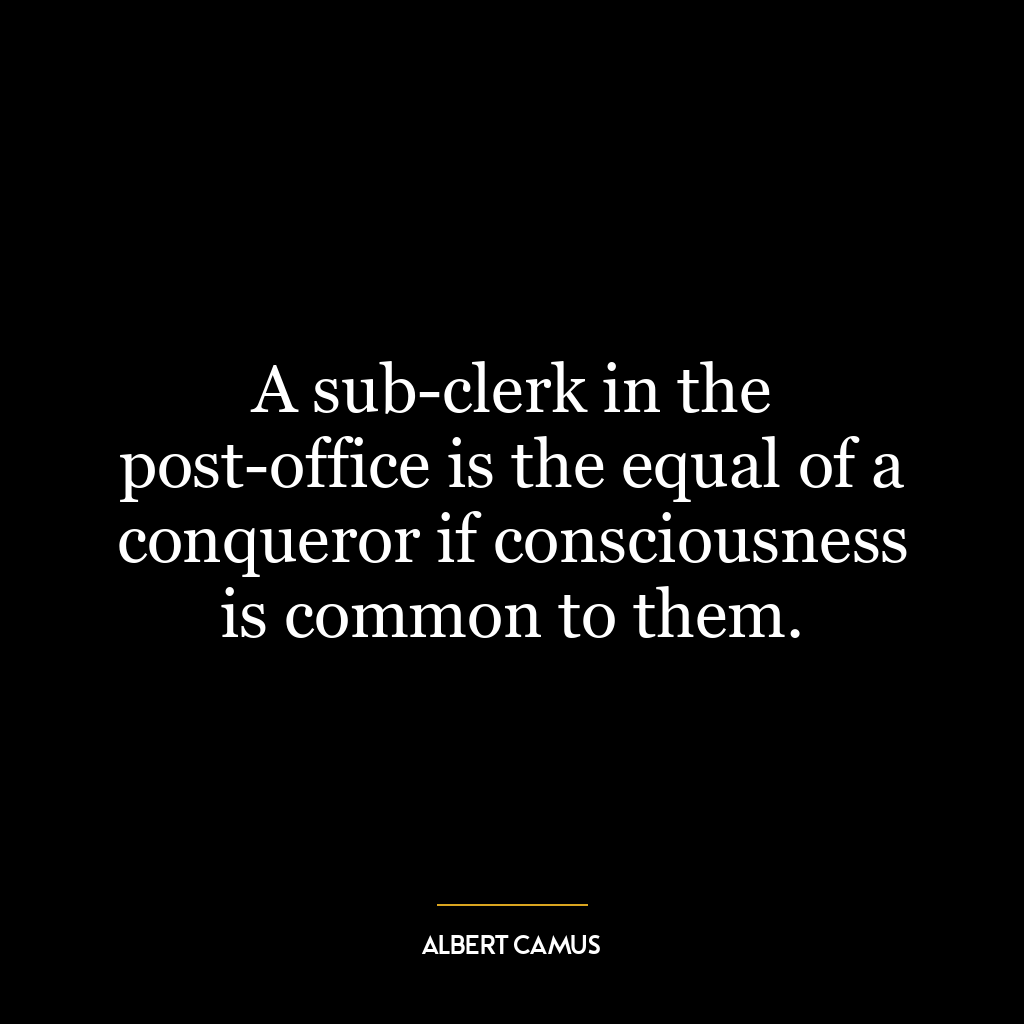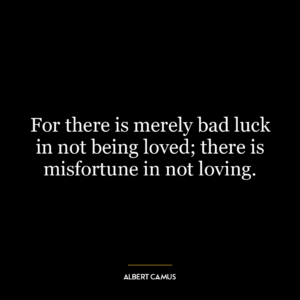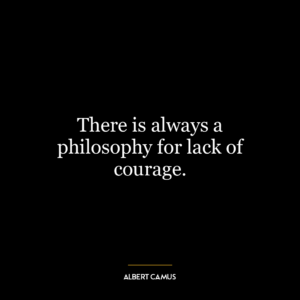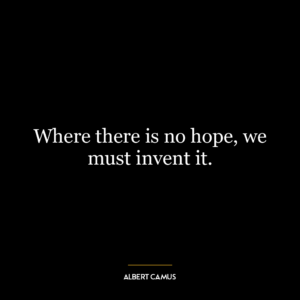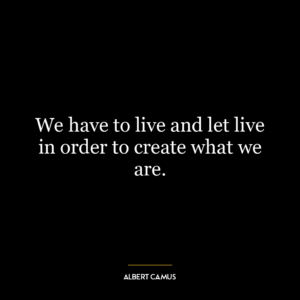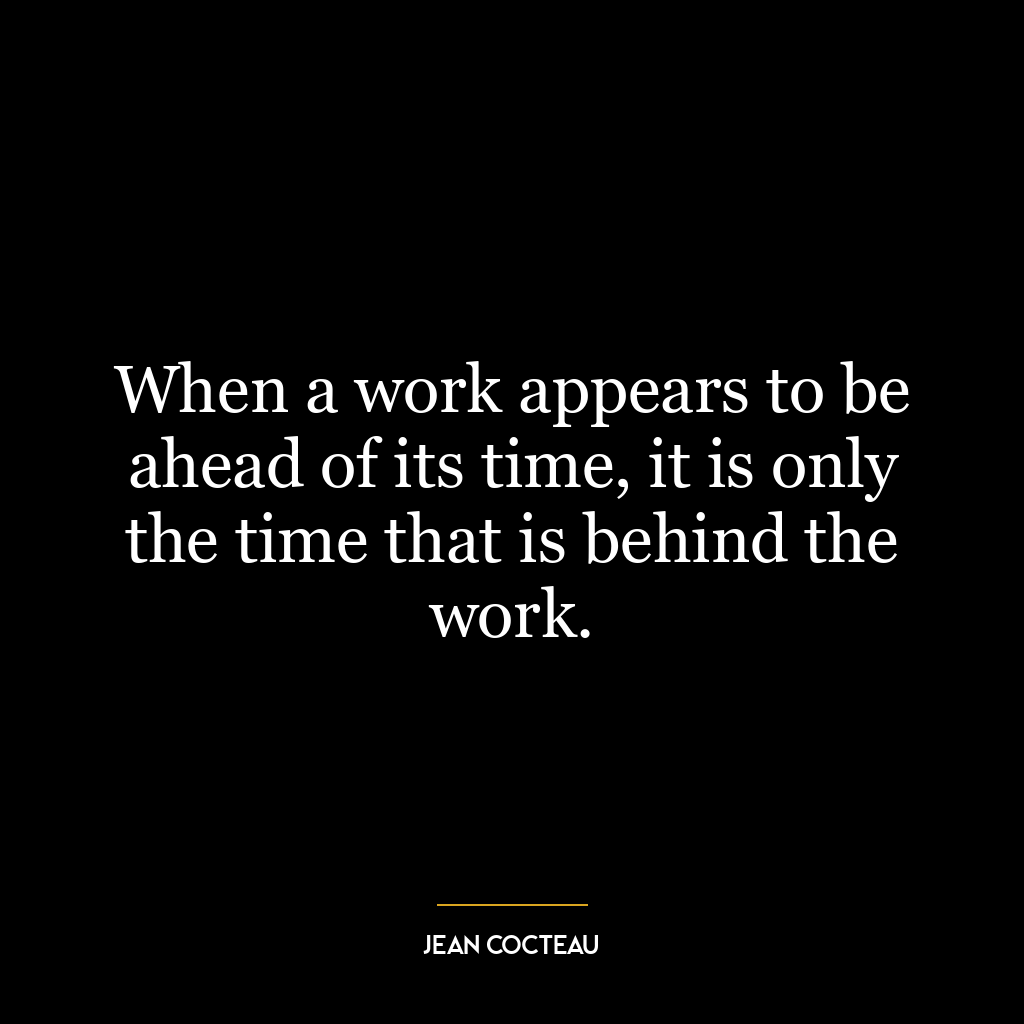A sub-clerk in the post-office is the equal of a conqueror if consciousness is common to them.
This quote suggests that all individuals, regardless of their societal roles or accomplishments, hold an equal value when it comes to their consciousness or their capacity to experience life. A sub-clerk in the post-office and a conqueror may seem worlds apart in terms of power, prestige, or influence, but Camus argues that they are equals when it comes to their shared human experience.
The idea of consciousness here refers to the ability to be aware of one’s existence, thoughts, and surroundings. It’s the subjective experience of life, the ‘inner universe’ that each of us carries within. This inner universe is a great equalizer because it is not influenced by external factors such as social status, wealth, or power. It is a fundamental aspect of being human that is common to all.
In today’s world, this idea can be applied in many ways. For instance, in our interactions with others, it encourages us to see beyond the superficial differences of societal status or occupation, and recognize the shared human experience. It can also be a reminder of our inherent worth as individuals, regardless of our achievements or failures.
In terms of personal development, this quote can inspire us to focus more on cultivating our inner lives. Often, we get caught up in the rat race, in the pursuit of external validation or success. But Camus’ quote is a reminder that these external markers do not define our worth or our human experience. It encourages us to focus on the things that truly matter, like self-awareness, personal growth, and meaningful relationships.
In essence, the quote is a call for humility, compassion, and introspection. It is a reminder of our shared humanity and the inherent worth of every individual.

